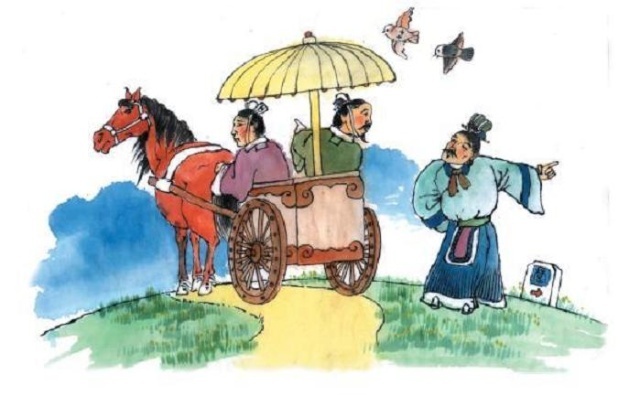EP22 南方北方 South and North

EP22 南方北方 South and North
Talk about weather in Chinese;
Differences between South China and North China
How geography affects personalities
Part I Chinese 101
Dialogue:
A:今天天气真热!还很干燥。
jīn tiān tiān qì zhēn rè !hái hěn gān zào
It’s extremely hot today! And it’s very dry.
B:这是在北方。南方气候湿润,但经常下雨。
zhè shì zài běi fāng 。nán fāng qì hòu shī rùn ,dàn jīng cháng xià yǔ
This is in the north. The weather in the south is wet, but it always rains.
Words & Expressions:
【热】rè: hot; heat; fever
【干燥】gān zào: dry
【北方】běi fang: north
【南方】nán fang: south
【气候】qì hòu: weather
【湿润】shī rùn: wet
【但】dàn: but
【经常】jīng cháng : often; frequently; regularly
【下雨】xià yǔ: rain
Part II Language Tips
The difference in climate makes the characteristics of people in the south and north different.
How geography affects personalities;
Part III Story of The Day

南辕北辙
nán yuán běi zhé
To Undermine One's Own Intentions
Chinese people used the phrase 南辕北辙 to indicate an act that undermines one's own intentions.
Literal meaning: Heading to the north while your intended direction is to the south
Explanation: to describe a stupid behavior that prevents one from reaching the goal.
E.g
老师让求平行四边形的面积,你怎么求周长了呢?真是南辕北辙。
lǎo shī ràng qiú píng xíng sì biān xíng de miàn jī ,nǐ zěn me qiú zhōu zhǎng le ne ? zhēn shì nán yuán běi zhé 。
The teacher asked for the area of this parallelogram, so why you are calculating the perimeter? You are undermining your own intention.

